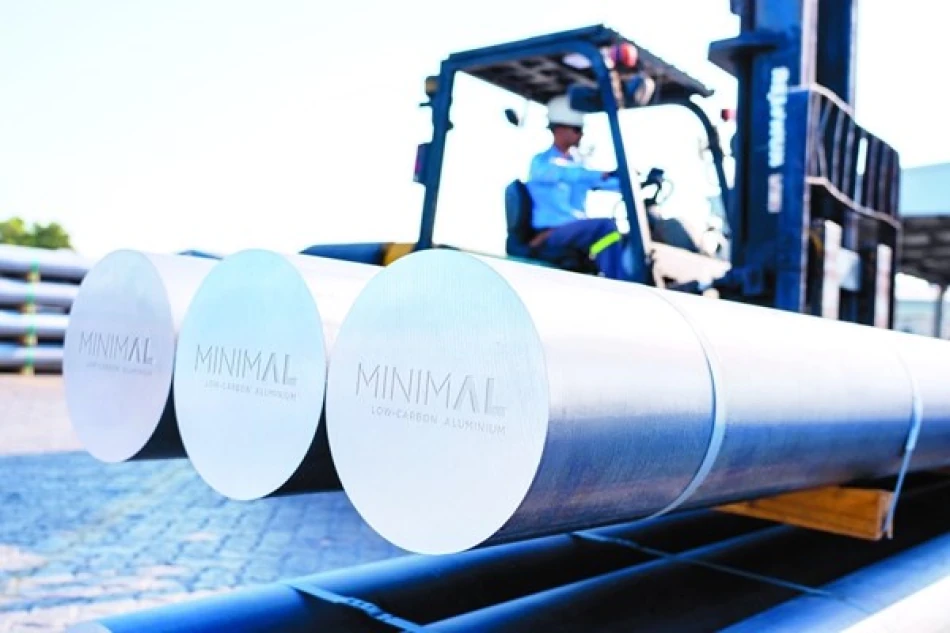
UAE Aluminum and Nuclear Energy Firms Deliver First Shipment Powered by Barakah Nuclear Plant
UAE Delivers First Nuclear-Powered Aluminum as Clean Industrial Revolution Accelerates
The UAE has shipped its first batch of low-carbon aluminum produced using electricity from the Barakah nuclear power plant, marking a significant milestone in the Gulf state's push to become a global supplier of clean industrial materials. Emirates Global Aluminium's new "MinimAL" product represents the latest evolution in sustainable metal production, following the company's earlier solar-powered aluminum initiative.
Nuclear Power Transforms Heavy Industry
The collaboration between Emirates Global Aluminium (EGA) and Emirates Nuclear Energy Company demonstrates how nuclear power can decarbonize energy-intensive industries that have traditionally been among the world's largest carbon emitters. Aluminum production typically requires enormous amounts of electricity, making it an ideal candidate for clean energy integration.
The Barakah nuclear facility now generates 40 terawatt-hours of clean electricity annually—equivalent to 25% of the UAE's total power needs and matching Switzerland's entire annual energy consumption. This nuclear capacity enables the UAE to avoid 22.4 million tons of carbon emissions yearly, equivalent to removing 4.6 million cars from roads.
Strategic Market Positioning
The first MinimAL shipment went to Canex Aluminum Drawing Company in Egypt, which will use the low-carbon metal for infrastructure, solar energy, transportation, and architectural applications. This partnership signals growing regional demand for sustainable materials as Middle Eastern countries pursue their own net-zero commitments.
Racing Against Global Competition
The UAE's nuclear-aluminum initiative puts it in direct competition with other nations pursuing clean industrial strategies. China dominates global aluminum production but faces increasing pressure over its coal-heavy energy mix. Meanwhile, European producers are struggling with high energy costs, creating opportunities for Gulf states with abundant clean power.
Mohamed Al Hammadi, CEO of Emirates Nuclear Energy Company, emphasized that nuclear power provides the round-the-clock reliability that energy-intensive industries require—an advantage over intermittent renewable sources like solar and wind.
Market Demand Surge
EGA CEO Abdulnasser Bin Kalban noted that demand for low-carbon aluminum is expected to triple by 2040, driven by automotive electrification, renewable energy infrastructure, and stricter environmental regulations. This projection aligns with global trends as manufacturers face increasing pressure from investors and consumers to reduce their carbon footprints.
Building a Clean Materials Empire
The nuclear-powered aluminum launch builds on EGA's existing portfolio of sustainable metals. The company already produces 80,000 tons annually of solar-powered "CelestiAL" aluminum and operates recycled aluminum facilities in the US and Germany under the "RevivAL" brand.
EGA is constructing the UAE's largest aluminum recycling plant in Al Taweelah, scheduled to begin production in the first half of 2026. This expansion reflects the company's strategy to capture value across the entire aluminum lifecycle, from primary production to recycling.
Certification and Credibility
The clean energy credentials are verified through the UAE's Clean Energy Certificate program, using International Renewable Energy Certificate (I-REC) protocols to ensure traceability and reliability. Emirates Water and Electricity Company (EWEC) supplies the power through the national grid, providing transparent documentation of the energy source.
Industrial Decarbonization Blueprint
The UAE's approach offers a template for other resource-rich nations seeking to decarbonize heavy industry while maintaining economic competitiveness. By leveraging nuclear baseload power alongside solar capacity, the Emirates is creating a diversified clean energy portfolio that can support round-the-clock industrial operations.
This strategy positions the UAE as a potential clean materials hub for global supply chains increasingly focused on reducing scope 3 emissions. As carbon border adjustments and sustainability reporting requirements tighten globally, demand for verified low-carbon industrial inputs will likely accelerate beyond current projections.
Most Viewed News

 Layla Al Mansoori
Layla Al Mansoori






